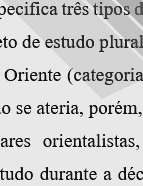

Since the eighteenth century, Europe’s magpie-like spirit had been attracted by ‘oriental’ motifs, but by the end of the nineteenth century, thanks to the aforementioned scientific societies and associations, other structures stimulating the study of and creation of knowledge about the non-European were being established, some of which were organized formally, while others served a more symbolic patriotic purpose and occupied a more concentrated period of time. Examples of the former include colonial museums (such as the Lisbon Colonial Museum, which first opened in 1870, before moving to the installations of the Geographical Society in 1892) and private ‘oriental’ collections (such as that exhibited by the Viscount of S. Januário in his house on Rua do Alecrim in Lisbon in 1878. On this occasion, various pieces from the collection were auctioned off, some of them ending up in the repository at the Lisbon Colonial Museum [Cardoso, “Conde São Januário”, 2012-2013, p. 39]). Commemorations are an example of the latter. The organization of exhibitions and the celebration of centenaries served as mechanisms for the materialization and recollection of Portugal’s colonial past. These events revisited the historical and literary heroes of the country’s maritime expansion (namely Vasco da Gama, D. Manuel, Nuno Álvares Pereira, Prince Henry the Navigator, Camões, Afonso de Albuquerque, and Fernão Mendes Pinto), who were transformed into symbols of the Portuguese national identity, as well as the historical episodes which moulded this identity (such as the conquest of Ceuta, the battle of Alcácer Quibir or the journey of Vasco da Gama). Orientalism in Portugal therefore rested not only on the commemorative actions of a cult of the past, which articulated an apology of the Portuguese imperial project, but also on the mythification of national history.
In this way, from the second half of the nineteenth century and into the first half of the twentieth, one can detect an almost fetishized obsession among Portuguese orientalists with the history of Portugal’s presence in the Orient, an obsession which can clearly be seen in the Portuguese contributions to a number of sessions of the International Congresses of Orientalists. It is worth noting, however, that, as pointed out by David Lopes, “[the] sixteenth century [...] in Portugal, was the period of greatest political and literary activity” (Chronica dos Reis de Bisnaga, 1897, p. LII). It was the Portuguese who had written the history of and documented this political and commercial adventure, such as João de Barros, Diogo do Couto and Garcia da Orta, that Lopes considered to be “the real predecessors of modern orientalists, researchers and concatenators. Often they drank from the source; others resorted to interpreters; there is a thirst for knowledge in them which is all the more admirable because the elements at their disposal were so few” (Idem, p. LII). Along with these names – authors of chronicles and treatises demonstrating that which today, in light of Said’s theses on modern orientalism (Orientalism, 1978), can be construed as proto-orientalism – there are also those involved in missionary activity. This activity produced a number of discourses of significant documentary value, from letters reporting on the progress of the mission to linguistic tools intended to support intercultural understanding and the success not only of conversion efforts, but also of the commercial project. Still other missionaries wrote itineraries or reports of journeys over both land and sea, as well as accounts of Portuguese embassies to the Orient.
